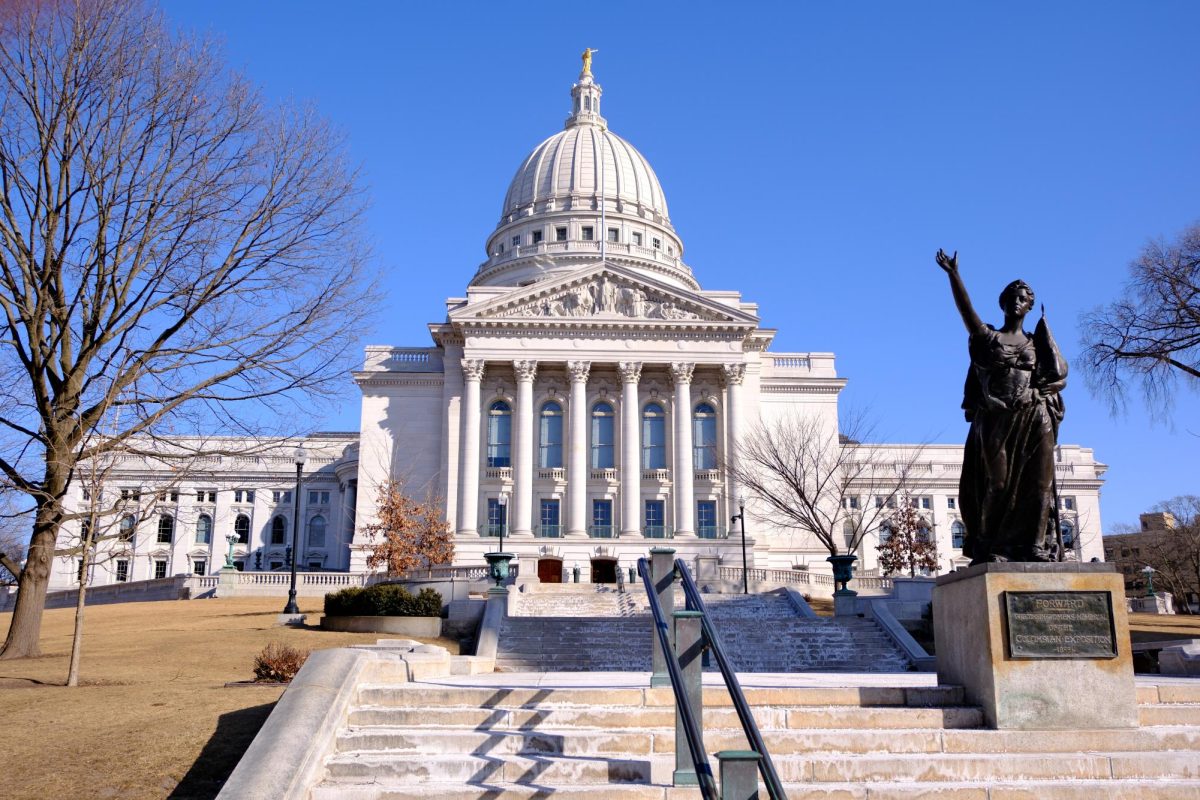Applications for the Madison Arts Commission’s 2025-2026 grants opened Jan. 31. Until March 1, artists and non-profit organizations in Madison have the chance to apply for grants ranging from $1,000 to $5,000.
2025 marks the 51st anniversary of the MAC’s annual arts grants program. Throughout its history, the MAC has financially supported everything from theater groups and arts festivals to individual musicians and painters.
While the total amount given has varied from the program’s inception, over $100,000 in grants were given to members of the art community in 2024, with the average recipient receiving $1,700. With this funding, awardees are encouraged to use the money to improve arts access to the community, particularly for those in underrepresented groups.
“We are focused on making sure that whatever we’re funding is accessible to the public,” Madison Community and Cultural Resources Planner Meri Rose Ekberg said.
Those interested in applying must provide a thorough plan detailing how the grant will be used, including a comprehensive budget and an explanation of how the funding will serve the needs of the Madison community. Organizations that have received MAC funding for three out of the past six years are allowed to apply for a shortened legacy grant.
The Madison Savoyards apply for this more simple legacy grant annually. This theater group produces at least one Gilbert and Sullivan opera a year. The group is planning to use the MAC’s support for their production of “Iolanthe” this August.
While the MAC grant doesn’t cover the costs of producing an opera with over 70 cast and crew members, Madison Savoyards Board Treasurer Aimee Broman said the public support gives the show legitimacy to the Madison community.
“It helps with fundraising to say that we’re backed by these public organizations,” Broman said.
For others, the MAC grants provide essential funds for art supplies and marketing materials. Madison abstract painter Issis Macias applied for the MAC grant for the first time in 2024. Macias turned to painting in 2020 as a way to deal with the emotional and physical stress of becoming a mother. Since then, she has turned this passion into a full-time career.
Opening March 7 at the Latino Arts, Inc. in Milwaukee, Macias’ upcoming solo show, “Her Colorful World,” celebrates the relationship between mother and daughter. Macias is part of the Macondo Project Collective, a group of Latin American artists celebrating their shared stories and heritage.
As a first-generation Mexican-American and Macondo member, Macias is working to ensure that her art is available to the Spanish-speaking community in Madison. For her solo show, she hosted two separate opening receptions — one reception was for English speakers, while the other was entirely in Spanish.
“I wanted to make gallery spaces more inclusive,” Macias said.
Macias was able to strengthen her connection to the Spanish-speaking community through MAC’s arts grant funding. She used the grant to form a partnership with Little Picassos, a nonprofit organization that offers arts education to low-income youth in Madison.
With support from Little Picassos, Macias provided free abstract art lessons to students of color. At a special reception of her solo show “Ethereal Spaces” at the Arts and Literature Laboratory, the students were led through a gallery to see the process of creating an abstract painting from start to finish.
With help from the MAC grant, Macias bought art supplies to create two large paintings to donate to the reception. Students drew on top of Macias’ paintings with pastels, creating a collaborative piece together as a group.
“I was able to connect with the Latino students and the Spanish-speaking community,” Macias said. “That was very important to me because it’s all about representation and inclusivity.”
Filling a need in the Madison community, specifically for underrepresented groups, is one of the main criteria considered when MAC commissioners decide how to allocate funding to applicants.
Additionally, commissioners consider if the art produced has educational value and ensures that the final project is accessible to community members. Applicants are encouraged to offer free admission to the galleries, lectures and classes housing the art they produce.
“We want to make sure that there’s a free element,” Ekberg said. “There has to be some way for Madison residents to engage with this without having to spend money and to engage diverse communities.”
Madison artist and curator Roberto Torres Mata used the support he received from the 2024 MAC arts grant to create the exhibit “Heal, Create and Share.” The exhibit, hosted in the Arts and Literature Laboratory, focused on the lingering effects of the COVID-19 pandemic on the mental health of Madison’s diverse communities.
The 12 local artists Mata featured in “Heal, Create and Share” provided paintings, sculptures and multimedia installations to address the topic of mental health. To engage the community, scheduled quilting days, yoga, meditation and family craft events were hosted at the exhibit, all completely free. Mata intended to create a calming environment for members of the community to gather and collaborate.
“It was an initiative to really bring everybody into the space from diverse areas,” Mata said. “Through mental health, we could correspond to the sense of being a community, become stronger and be supportive of each other.”
Besides providing community events at the exhibit, the MAC grant also helped Mata pay the artists who contributed to “Heal, Create and Share.”
According to Ekberg, first-time applicants are given priority by MAC for the 2025-2026 grants, with new members of the Madison art community strongly encouraged to apply. As first-time applicants in 2024, Macias and Mata attribute their recent success to accessible public grants.
“Considering my project with the BIPOC youth, this financial support really does allow us artists to foster inclusivity and representation within the local art scene,” Macias said. “Funding in the arts is essential.”
Applications for the 2025-2026 MAC arts grant close March 1. Guidelines, details and one-on-one application assistance are available on the City of Madison website.



